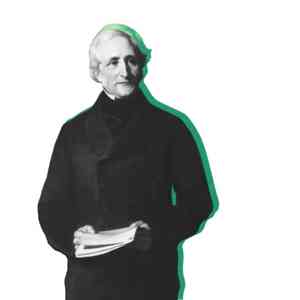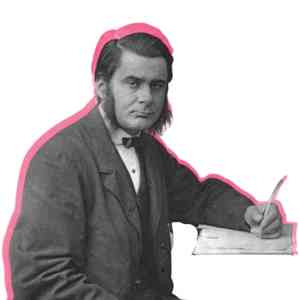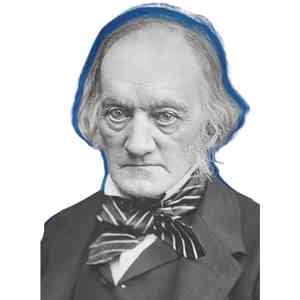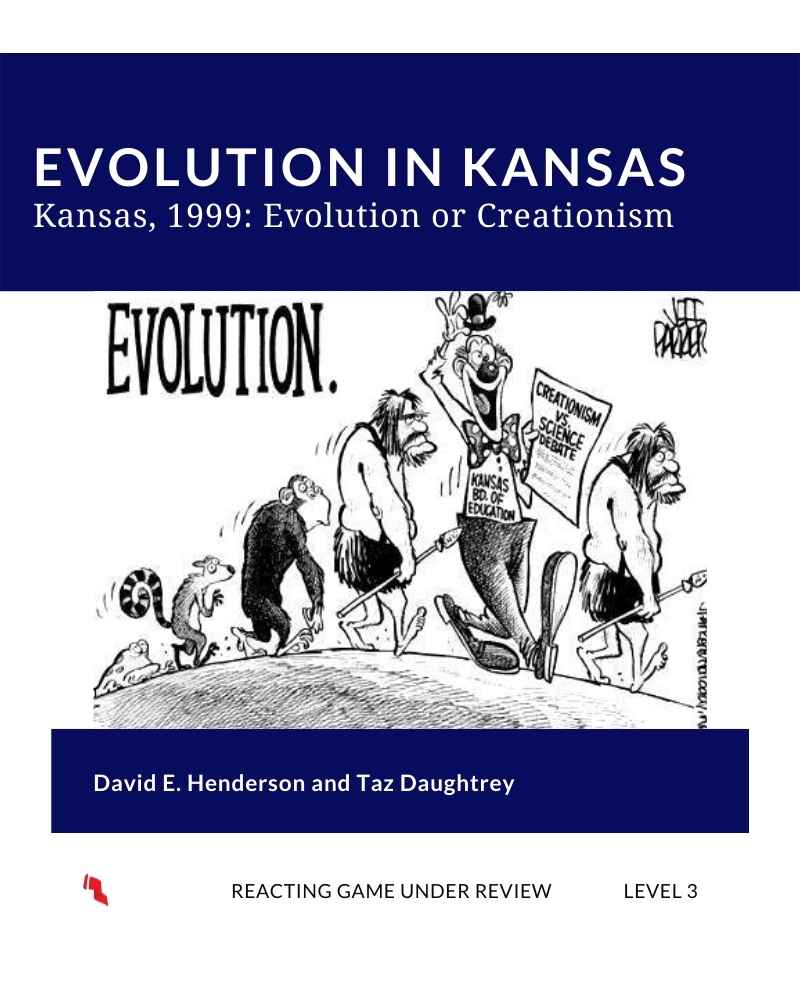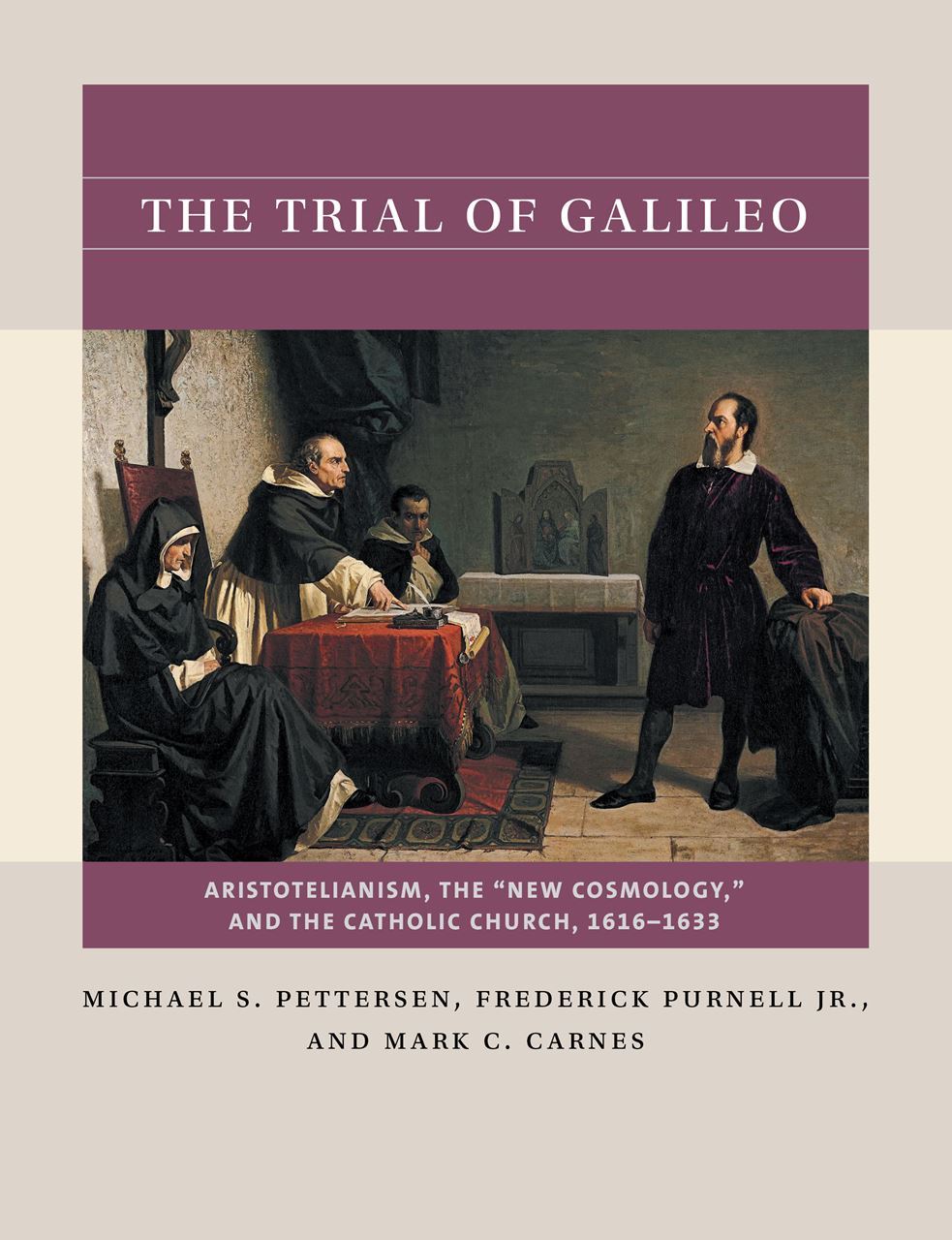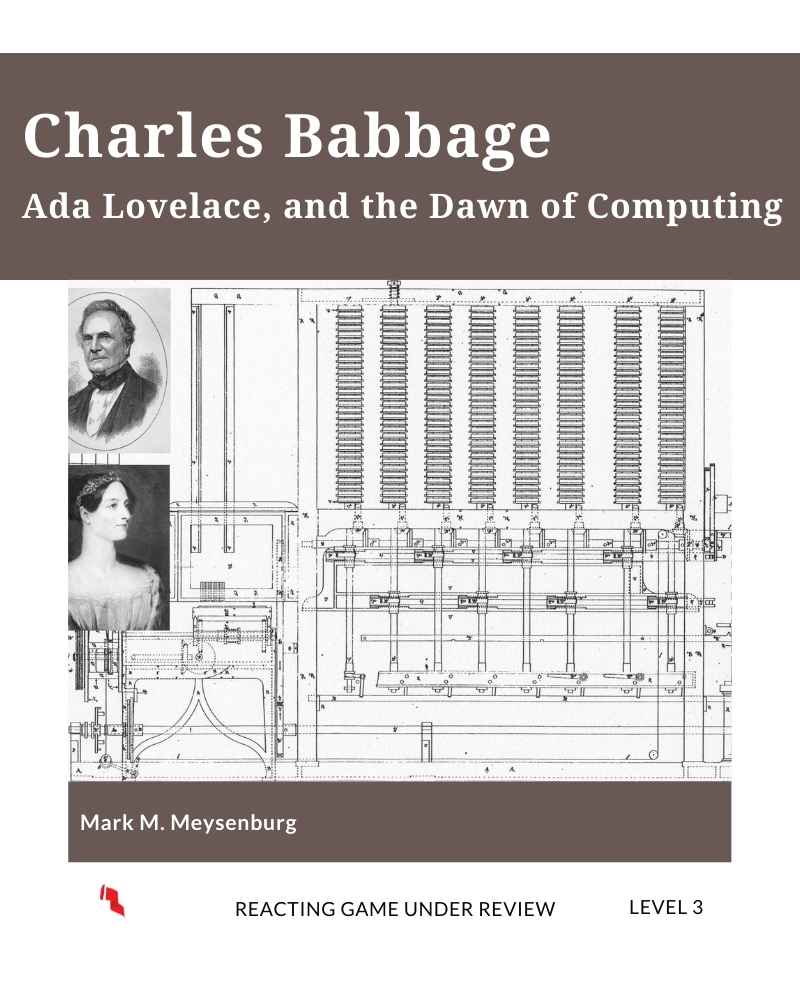 |
This game thrusts students into the intellectual ferment of Victorian England just after publication of On The Origin of Species. Since its appearance in 1859, Darwin's long-awaited treatise in “genetic biology” had received reviews both favorable and damning. Thomas Huxley and Samuel Wilberforce’s arguments for and against the theory sparked a vigorous, complex debate that touched on a host of issues and set the stage for the Royal Society’s consideration of whether or not they ought to award Darwin the Copley Medal, their most prestigious prize. While the action takes place in meetings of the Royal Society, Great Britain’s most important scientific body, a parallel and influential public argument smoldered over the nature of science and its relationship to modern life in an industrial society. A significant component of the Darwin game is the tension between natural and teleological views of the world. But the scientific debate also percolated through a host of related issues: the meaning and purposes of inductive and hypothetical-speculation in science; the professionalization of science; the implications of Darwinism for social reform, racial theories, and women’s rights; and the evolving concept of causation in sciences and its implications for public policy. The Revised Edition updates this venerable game to incorporate current Reacting best practices while preserving the core intellectual drama. |
Details
|
Notable Roles |
|
Using the Game
Class Size and Scalability Class Time For an abridged version, sessions 3-5 can be cut out. However, cutting these sessions will impact the presentation opportunities for some characters. Assignments You can adjust the assignments based on the desired learning outcomes of your class. This game can include traditional papers, research, thesis-driven writing, and science writing. Depending on the number of roles, either the Secretaries or generic roles may not have to give presentations. Possible Reacting Game Pairings You can adjust the assignments based on the desired learning outcomes of your class. This game can include traditional papers, research, thesis-driven writing, and science writing. Depending on the number of roles, either the Secretaries or generic roles may not have to give presentations. |
 GAME MATERIALS
GAME MATERIALS
Confirmed instructors who are not yet members can access basic instructor materials. Reacting Consortium members can access all downloadable materials (including expanded and updated materials) below. You will be asked to sign in before downloading.
Gamebook Students need a Gamebook, which includes directions, resources, and historical content. The Charles Darwin Gamebook is published by UNC Press. Paperback ISBN: 978-1-4696-8351-5 Published: October 2024 Available wherever books are sold. | Role Sheets Students also need a Role Sheet, which contains biographical information, role-specific resources or assignments, and their character's secret victory objectives. .zip folder of .pdf files. Updated August 2024 | Instructor's Manual The Instructor's Manual includes guidance for assigning roles, presenting historical context, assignments, activities and discussion topics, and more. .pdf file. Updated August 2024. .zip folder of .pdf files. Updated August 2024 |
Raymond A. Kimball
Reacting and Related Titles |
Amanda Rollinson
Reacting and Related Titles |
Marsha Driscoll
Marsha Driscoll served as professor and chair of psychology at Bemidji State University, where she was also director of the Honors Program. Her scholarly interests include the nature and role of cognitive and affective empathy, adult development, and the interdisciplinary connections of psychology to the other social sciences, humanities, and natural sciences. | Reacting and Related Titles
|
Elizabeth E. Dunn is the dean of the College of Liberal Arts and Business and professor of history at SUNY Oneonta. Her main area of scholarly interest is American intellectual history, particularly value conflicts raised by issues such as paper money and itinerant ministers. | Reacting and Related Titles
|
Dann Siems was assistant professor of biology at Bemidji State University. His research interests included the natural history of fishes, phenotypic plasticity in life history theory, relationship of ontogeny to phylogeny, history, and philosophy of biology, role of behavior and cognition in evolution, and evolutionary psychology. Charles Darwin, the Copley Medal, and the Rise of Naturalism, 1861-1864 is dedicated to his memory. |
B. Kamran Swanson
Kamran Swanson is assistant professor of philosophy at Harold Washington College in the Chicago area. His studies have focused on the philosophy of Benedict Spinoza and other seventeenth-century philosophers. | Reacting and Related Titles
|
REVIEWS
"I teach the Darwin game as part of a class on the role of social factors in the scientific process for senior students. A full year later, even graduated students are talking abouttheir experiences in the game, how it changed how they understand science and how it moved them beyond intellectual recognition of the social factors at play in science into a deep and embodied sense of the scientific process as thoroughly human. I'll never forget what a second semester senior told me he stayed up into the middle of the night to call the Royal Society of Science archivist in London on the phone to gain more information about his character, with no prompting whatsoever from me. The Darwin game motivates students to engage their own learning in a way I'd never seen before." | "I taught Darwin on Zoom in the spring but without demonstration labs. It worked very well because student opposing views are paired, so there is a structure that is simple for online." "I taught Darwin on Zoom in the spring but without demonstration labs. It worked very well because student opposing views are paired, so there is a structure that is simple for online." | "I'm currently going through the reflections of my students on their voting decisions in the Darwin game and they have been very enlightening. This is the first time I've taught the game and there have been quite a few teething problems, but the enthusiasm and the historical insight has been palpable in their responses." |
Members can contact game authors directly if they have questions about using the game. We also invite instructors join our Facebook Faculty Lounge, where you'll find a wonderful community eager to help and answer questions.
|
|
|

